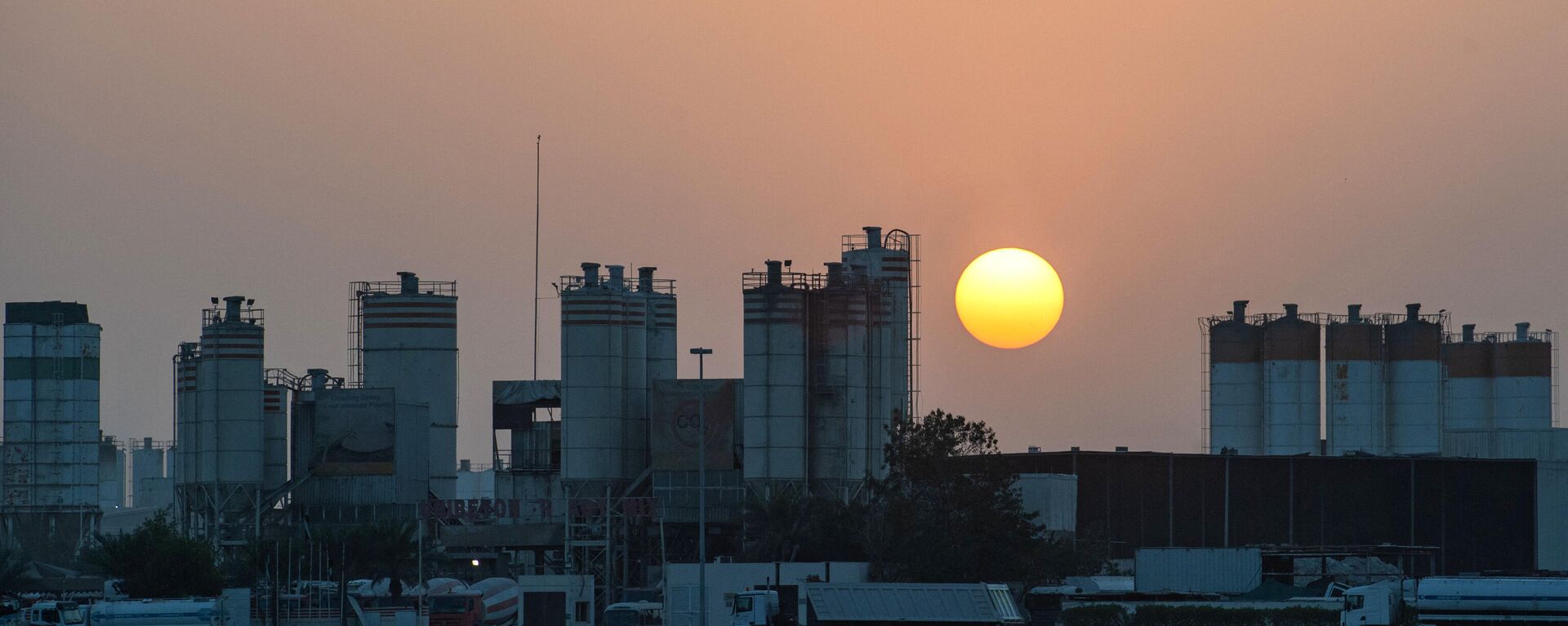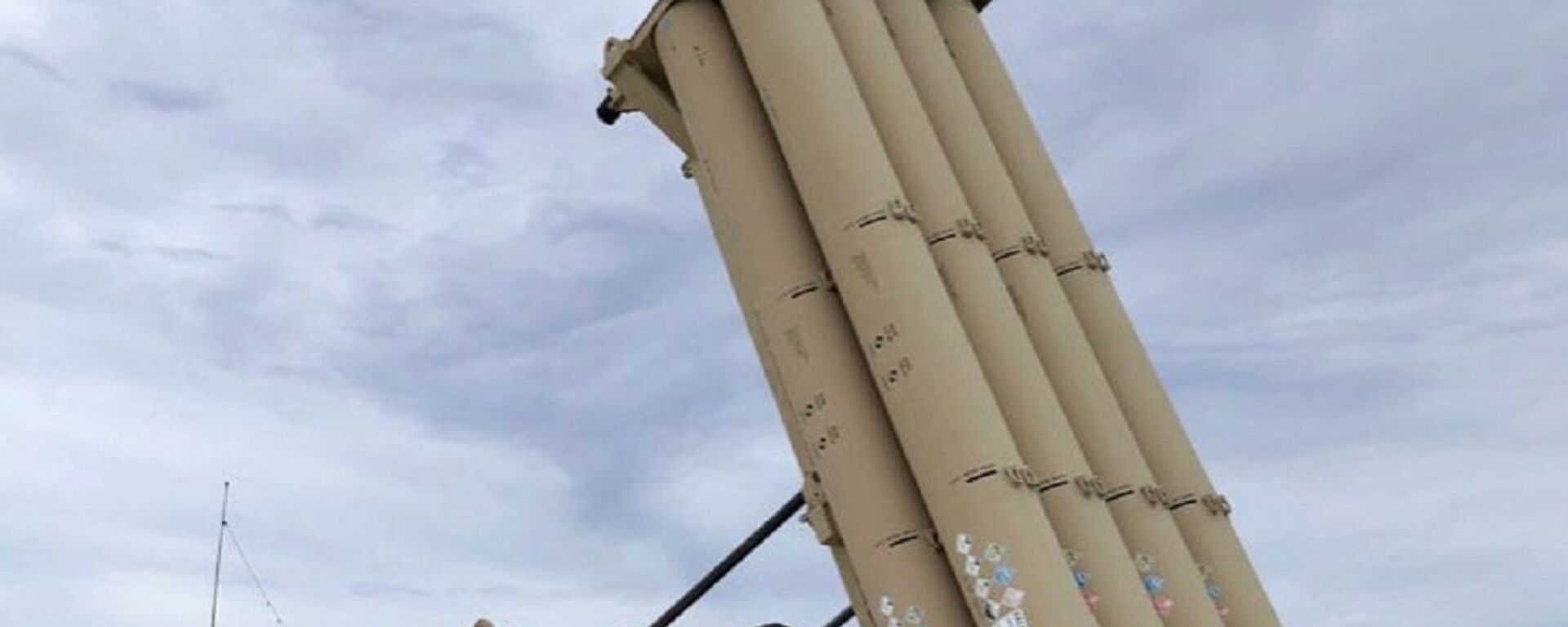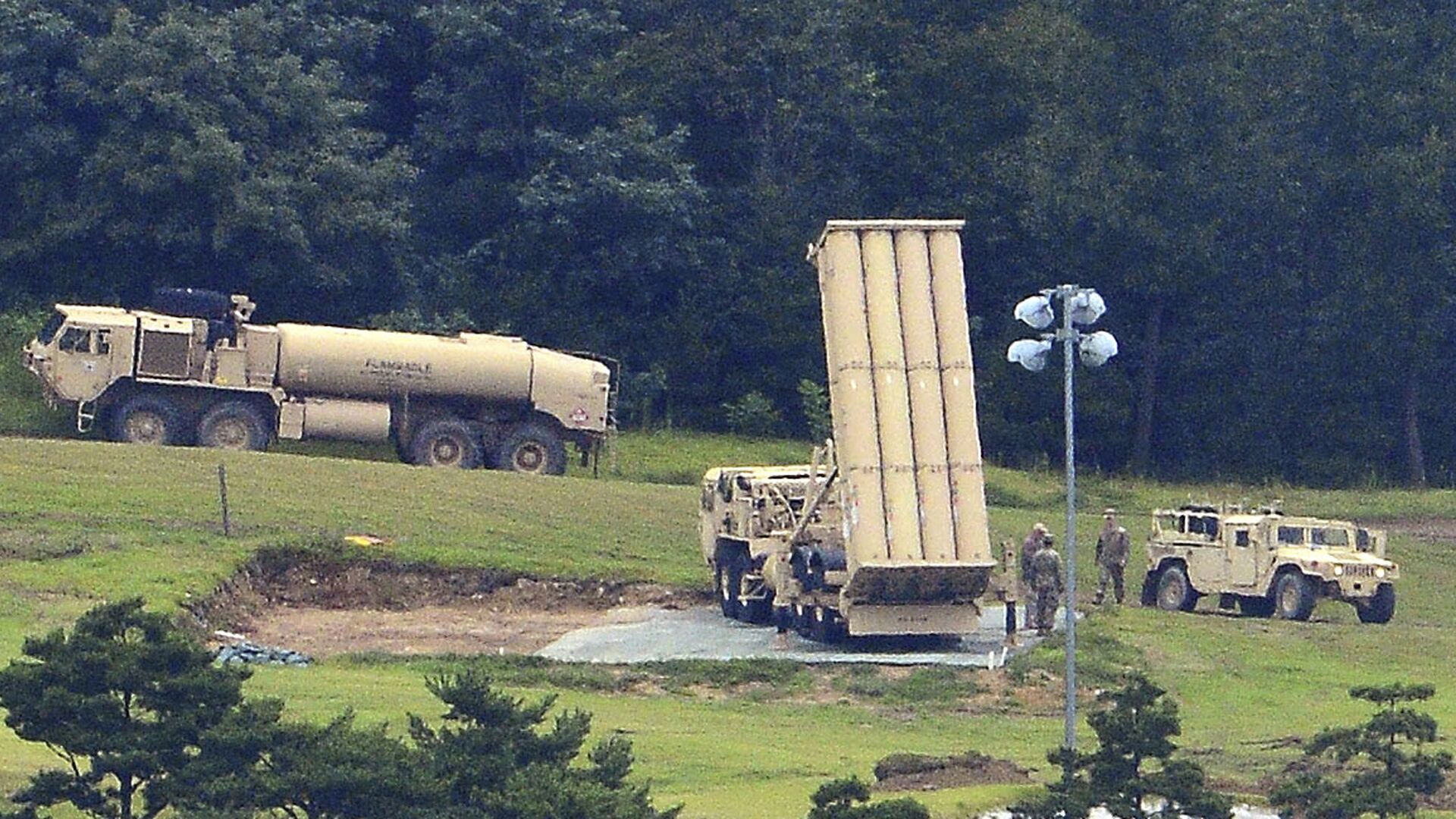https://sputnikglobe.com/20220122/thaad-missile-system-records-first-successful-combat-operation-amid-houthi-strikes-targeting-uae---1092439377.html
THAAD Missile System Records First Successful Combat Operation Amid Houthi Strikes Targeting UAE
THAAD Missile System Records First Successful Combat Operation Amid Houthi Strikes Targeting UAE
Sputnik International
Terminal High Altitude Area Defense (THAAD) is a ground-based missile defense system developed by Lockheed Martin in response to Iraqi Scud missile attacks... 22.01.2022, Sputnik International
2022-01-22T02:09+0000
2022-01-22T02:09+0000
2022-08-06T13:27+0000
houthis
arms deal
uae
lockheed martin
defense contract
thaad
us
https://cdn1.img.sputnikglobe.com/img/105724/25/1057242562_25:0:2000:1111_1920x0_80_0_0_7150db0b8160dca6215a6e89a0c27f19.jpg
After nearly 15 years of service, THAAD was used in its first known military operation, when a defense system owned by the United Arab Emirates took out a mid-range ballistic missile targeting an Emirati oil facility near Al-Dhafra Air Base, two sources who were granted anonymity told Defense News.The air base is currently home to American, French, and Emirati forces. The UAE's engagement came amid a series of hostile attacks by cruise missiles, ballistic missiles, and drones, according to Wednesday comments from Yousef al-Otaiba, UAE ambassador to the US. At least three individuals were killed during the attacks, as not all missiles were intercepted by UAE defenses. The attacks resulted in the UAE's first acknowledgment of being struck by Houthi forces. The UAE completed its first live-fire exercises with Patriot missiles in 2014, nearly three years after the initial deal was inked. The UAE notably graduated its first THAAD unit classes at the Texas-based US Army post of Fort Bliss in 2015 and 2016. The US Central Command confirmed in a Friday statement that "a potential inbound threat" forced American service members into their bunkers at Al-Dharfa Air Base. Troops were ordered to "heightened alert posture" for approximately 30 minutes.The US statement noted that airmen were instructed to keep protective gear close for at least 24 hours. The attacks referenced occurred on Sunday night/Monday morning, according to CENTCOM. While THAAD has been deployed to several parts of the world, including South Korea, Japan, Israel and Turkey, sales of the batteries have strained tensions in regions like the Pacific, where Beijing has opposed the purchase of the anti-missile system by Seoul. The US-made system has also attracted the attention of those attempting to best THAAD. In 2019, a THAAD system at Anderson Air Force Base in Guam was the apparent subject of repeated incursions by unmanned aircraft.The UAE became the first foreign customer for the Lockheed Martin-made missile defense system in the early 2010s. Saudi Arabia also secured a controversial THAAD deal with a reported cost of nearly $15 billion. Riyadh is slated to purchase a total of 44 THAAD batteries, including 360 missile interceptors.The US Army is presently operating below its THAAD fielding requirements, as only seven THAAD batteries are said to currently be in use. The service is expected to build an eighth battery with funding made available in the US fiscal 2021 budget.
https://sputnikglobe.com/20220117/houthis-threaten-to-undermine-uaes-economy-following-abu-dhabi-oil-depot-drone-attack-1092325723.html
https://sputnikglobe.com/20200916/thaad-battery-in-guam-proved-helpless-against-spotlight-armed-swarming-drones-report-says-1080475194.html
uae
Sputnik International
feedback@sputniknews.com
+74956456601
MIA „Rossiya Segodnya“
2022
News
en_EN
Sputnik International
feedback@sputniknews.com
+74956456601
MIA „Rossiya Segodnya“
Sputnik International
feedback@sputniknews.com
+74956456601
MIA „Rossiya Segodnya“
houthis, arms deal, uae, lockheed martin, defense contract, thaad, us
houthis, arms deal, uae, lockheed martin, defense contract, thaad, us
THAAD Missile System Records First Successful Combat Operation Amid Houthi Strikes Targeting UAE
02:09 GMT 22.01.2022 (Updated: 13:27 GMT 06.08.2022) Terminal High Altitude Area Defense (THAAD) is a ground-based missile defense system developed by Lockheed Martin in response to Iraqi Scud missile attacks during the 1991 Gulf War. The anti-ballistic missile system is designed to take down short-to-intermediate-range ballistic missiles via interceptors using kinetic energy, rather than warheads.
After nearly 15 years of service, THAAD was used in its first known military operation, when a defense system owned by the United Arab Emirates took out a mid-range ballistic missile targeting an Emirati oil facility near Al-Dhafra Air Base, two sources who were granted anonymity told Defense News.
The air base is currently home to American, French, and Emirati forces.
The UAE's engagement came amid a series of hostile attacks by cruise missiles, ballistic missiles, and drones, according to Wednesday comments from Yousef al-Otaiba, UAE ambassador to the US.
"Several attacks, a combination of cruise missiles, ballistic missiles and drones, targeted civilian sites in the UAE," al-Otaiba said during a virtual session sponsored by the Jewish Institute for National Security of America.
At least three individuals were killed during the attacks, as not all missiles were intercepted by UAE defenses.
The attacks resulted in the UAE's first acknowledgment of being struck by Houthi forces.
The UAE completed its first live-fire exercises with Patriot missiles in 2014, nearly three years after the initial deal was inked. The UAE notably graduated its first THAAD unit classes at the Texas-based US Army post of Fort Bliss in 2015 and 2016.
The US Central Command confirmed in a Friday statement that "a potential inbound threat" forced American service members into their bunkers at Al-Dharfa Air Base. Troops were ordered to "heightened alert posture" for approximately 30 minutes.

17 January 2022, 17:29 GMT
The US statement noted that airmen were instructed to keep protective gear close for at least 24 hours.
The attacks referenced occurred on Sunday night/Monday morning, according to CENTCOM.
"Everything was professional and disciplined. The 'all clear' was called at 9:27 p.m. local time," said Captain Bill Urban, CENTCOM spokesperson. "There was no mission impact."
While THAAD has been deployed to several parts of the world, including South Korea, Japan, Israel and Turkey, sales of the batteries have strained tensions in regions like the Pacific, where Beijing has opposed the purchase of the anti-missile system by Seoul.
The US-made system has also attracted the attention of those attempting to best THAAD. In 2019,
a THAAD system at Anderson Air Force Base in Guam was the apparent subject of repeated incursions by unmanned aircraft.
The UAE became the first foreign customer for the Lockheed Martin-made missile defense system in the early 2010s.

16 September 2020, 11:24 GMT
Saudi Arabia also secured a controversial THAAD deal with a reported cost of nearly $15 billion. Riyadh is slated to purchase a total of 44 THAAD batteries, including 360 missile interceptors.
The US Army is presently operating below its THAAD fielding requirements, as only seven THAAD batteries are said to currently be in use. The service is expected to build an eighth battery with funding made available in the US fiscal 2021 budget.



